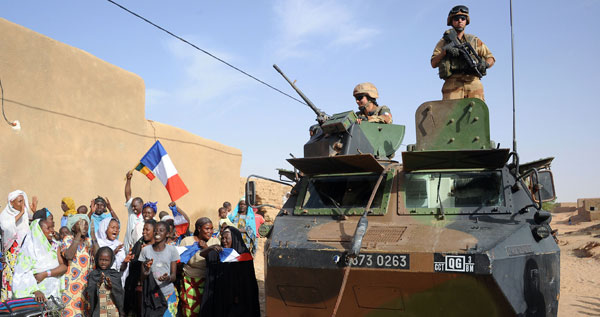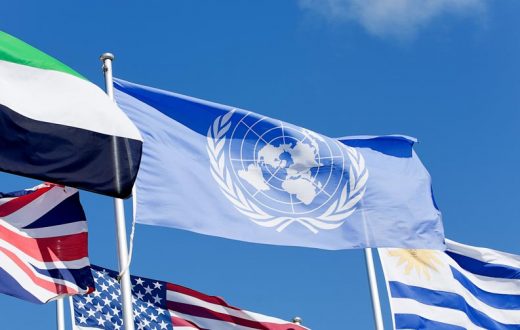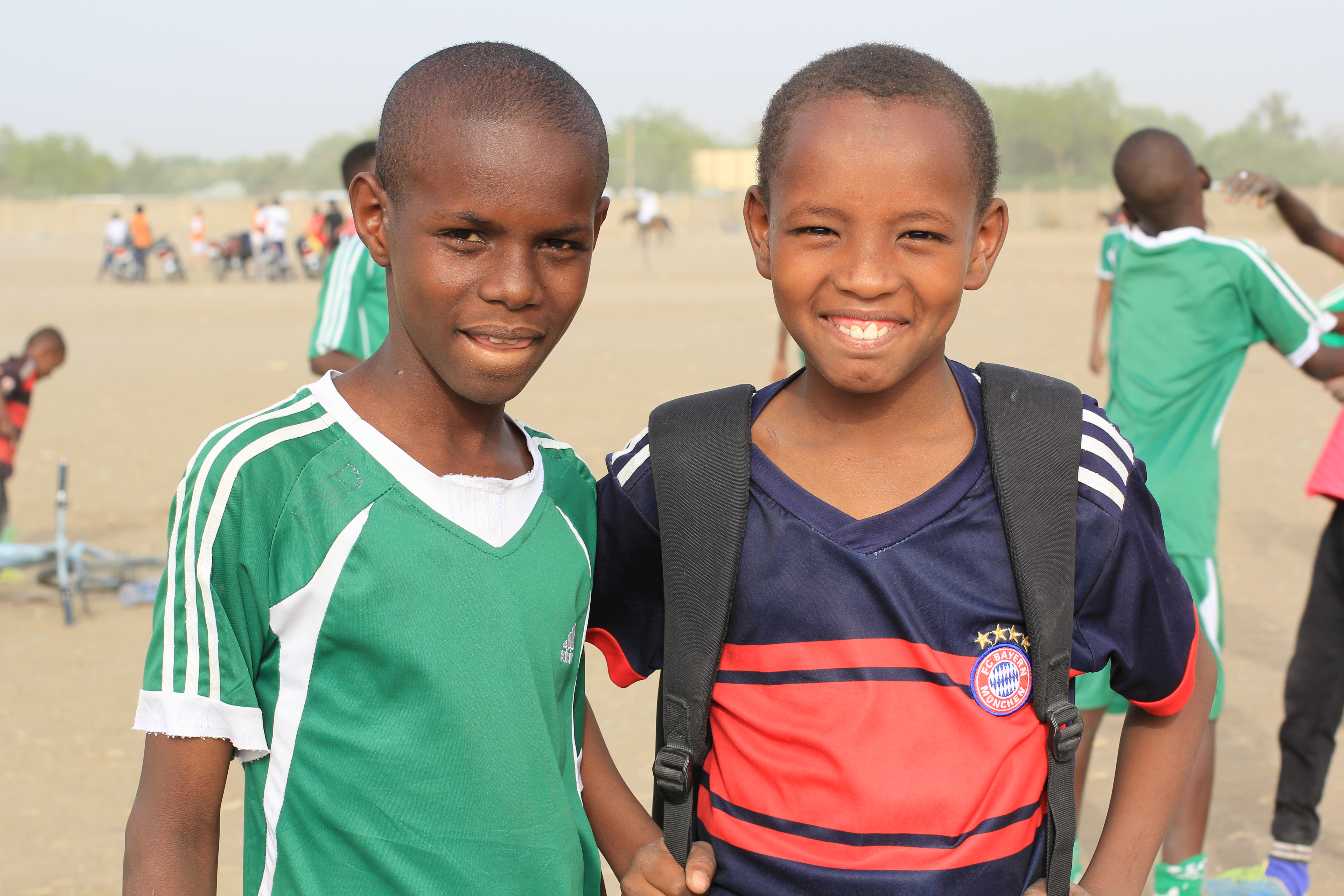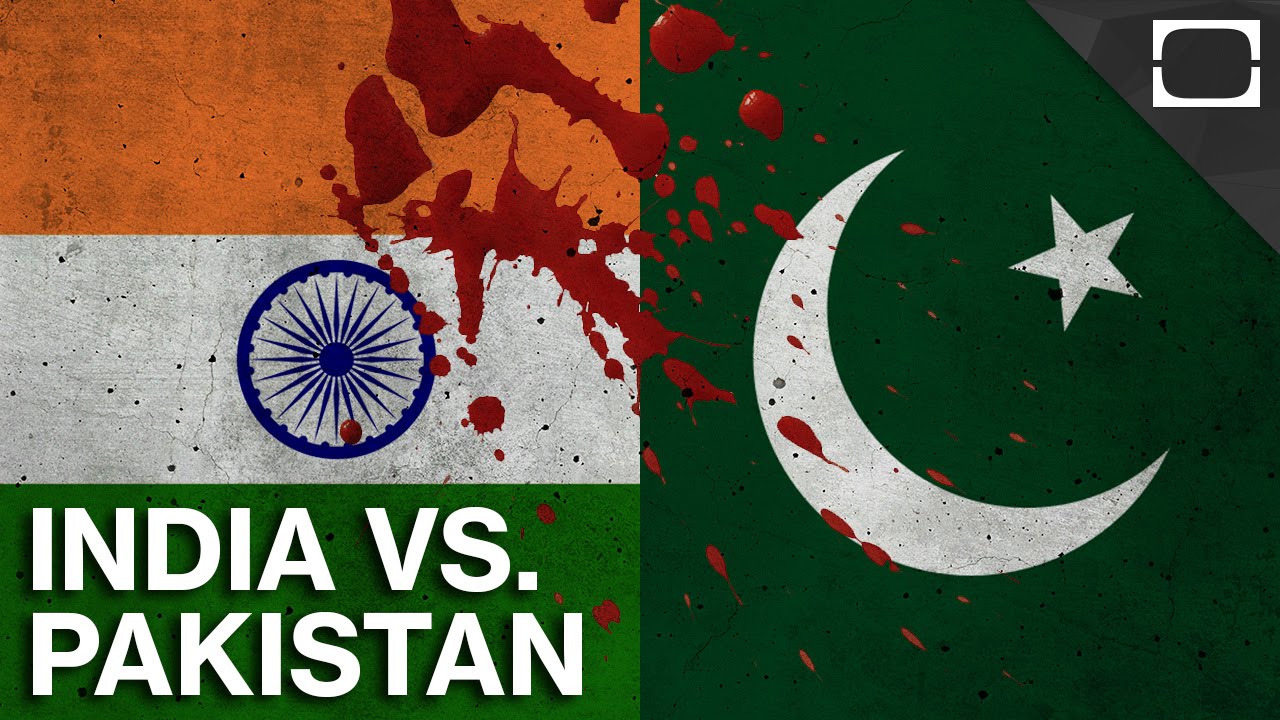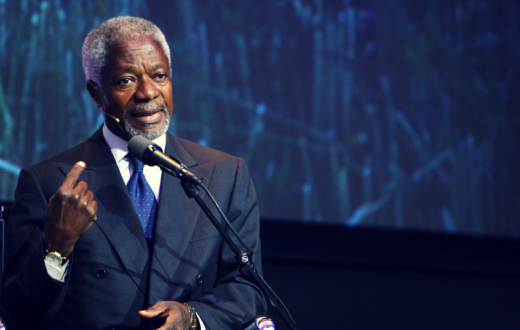Western Powers’ appetite for the dispatch of armed forces into Africa has been increased greatly in the twenty-first century. The so-called protection of civilians and counter-terrorism was behind most of military interventions over the past two decades. Unfortunately, the results of military interventions on the continent did not change anything; in fact, it worsens the situation in the continent, as it has become more complicated in places like Somalia, Central African Republic [CAR], Democratic Republic of Congo [DRC] and particularly Libya.
Same Mistakes
Mali and CAR are almost in the same way of Libya, Afghanistan and Iraq. Western powers have been committing the same mistake every time they kick off a military intervention in Africa since their intervention in Somalia. Perhaps, just like me, you have been wondering, how Western Powers evaluate their calculus and decisions with their African partners when it comes to any military intervention in Africa. How do their policy-makers understand their SWOT analyses? Probably their policy-makers think that each military intervention is taking place in state similar to each other or looks like a western model at least. This kind of thinking has led Western powers into failed combats. Somalia, Libya, Mali and CAR were and are all failed-states – or rather; these states have become less good than my African father’s corral.
Despite many military interventions on the continent to battle the increased terror threats, or protecting civilians; little is known about the effects of military interventions in Africa. Military interventions in Somalia in 1992 marked the emergence of an episode that had previously received little analytical attention on the continent. Foreign military interventions for the proclaimed objective of saving lives of civilians or helping the local population to survive the ruthlessness of armed and terrorists was not a fledgling coincidence, as shown by interventions in Rwanda, Libya and CAR in the ensuing years. There are a million reasons to believe that humanitarian interventions in Africa will continue in the future, as long as the Western Sahara still lacks peace – as we all know that the next danger is coming from there. Humanitarian crises will continue to arise. And hence, I expect a number of national and global militaries maintain the capacity to respond.
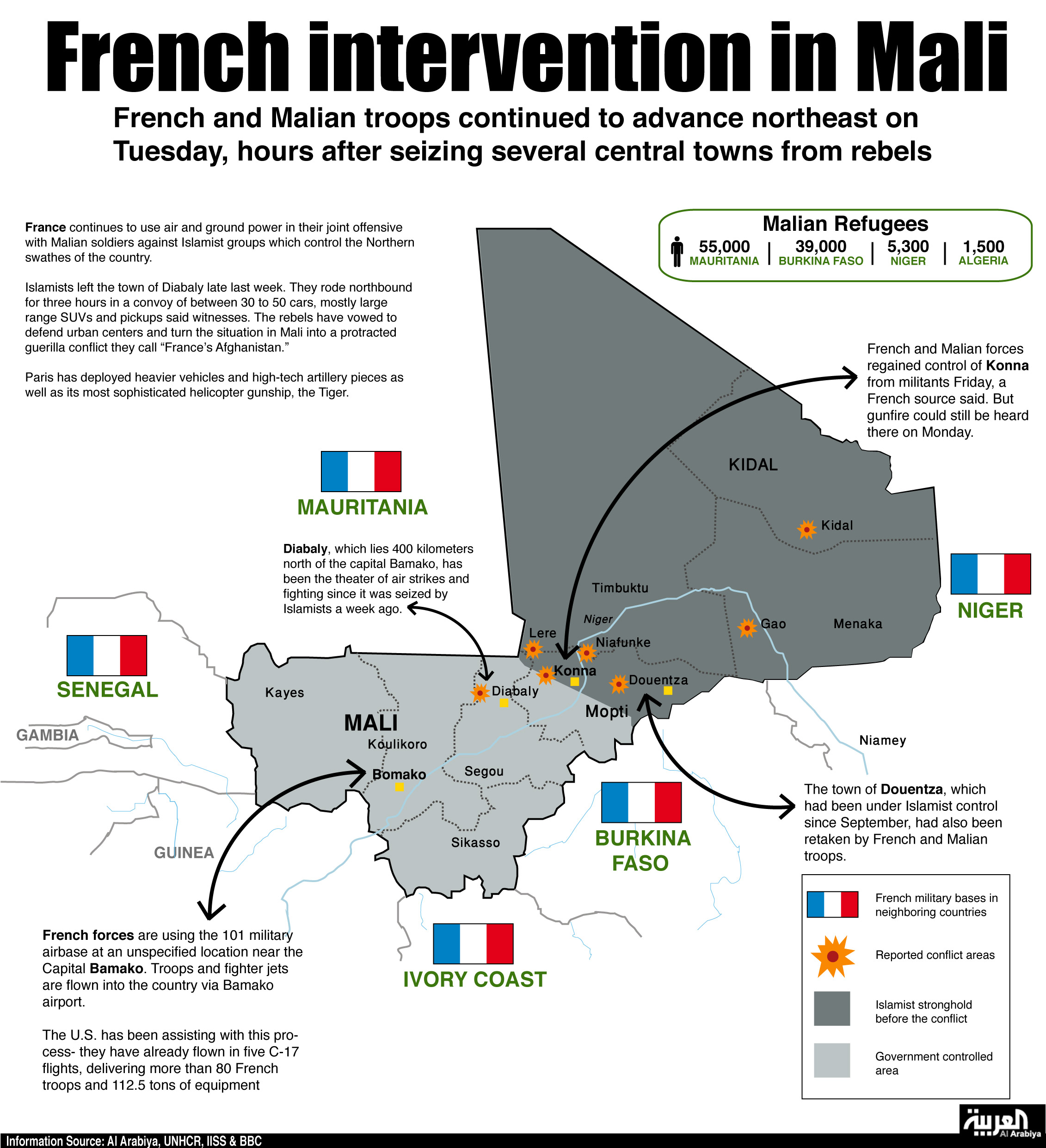
Credit : Al-Arabiya
The Failure of Preventive Measures
Although military and security solutions may finally represent an inevitable choice in the African reality, however, they reflect the failure of preventive measures such as mediation and negotiations. I am not trying to suggest that we should negotiate with all radical groups and terrorists, however, we have no choice, we must sit down with rebels and terrorists and negotiate sometimes.
What is negotiation and why do we need it? Surely these kinds of questions should not be asked by military strategists, but should be in the mind of young foreign policy-makers when thinking about going to war and ending it, as it’s been said that “It is easier to start a war than to end it.” I wonder if French policy-makers have deeply thought of the outcomes of the military interventions in Mali and CAR. It is obvious that France does not have the military and intelligence abilities required for a long counter- disobey or terrorism war in Africa and it does not possess the domestic economic engine needed to sponsor a decade-lengthy war.
In Mali for instance, we have seen the mediation of Burkina Faso President Blaise Compaoré with Tuareg rebels ended in 2012 throughout an abject failure, where the radical Islamic groups-such as Ansar al-Din, Tawhid and Jihad and al-Qaeda in the Arab Maghreb took over northern Mali and declared their silly independent state of Azawad. So far France repeated exactly the same mistakes made by the US in 2003 in Iraq. After the seizure of Timbuktu on January 29, 2013, French President, François Hollande, came to declare “we (France, Chad and Mali) are in the process of winning the battle.” followed by the declaration of the Defense minister of France, Jean-Yves le Drian, “the mission is fulfilled.”
This funny scenario looks too much like the 2003 Mission accomplished speech by former US President George W. Bush after the fall of the Saddam Hussein’s regime in Iraq. Look at these countries now after the so-called “the mission is fulfilled.” These countries are nothing but failed states and strongholds of terrorists. These French and American behaviors only functioned as a guideline for future actions of spread of terrorism. Meanwhile, reminding the world of their status of dominant powers. Any expert would agree that the war in Libya, Mali and CAR is far from being won. The war might just be a tool to please public opinion at home – or challenging China abroad.
Chaos and Violence
Take a look at CAR now, despite strong support to the French mission; the power vacuum occurring in Mali has occurred equally in CAR, the country has become deeply divided by violence between Western Christians and Eastern Muslims. The latest fight north of Bambari by February 2017 has proved to us that the country is still in chaos. One in four has fled their homes in CAR; the past week has been outstanding for Bambari. Hundreds of thousands of men, women, and children sill displaced. Is this the correction we’ve been waiting for?
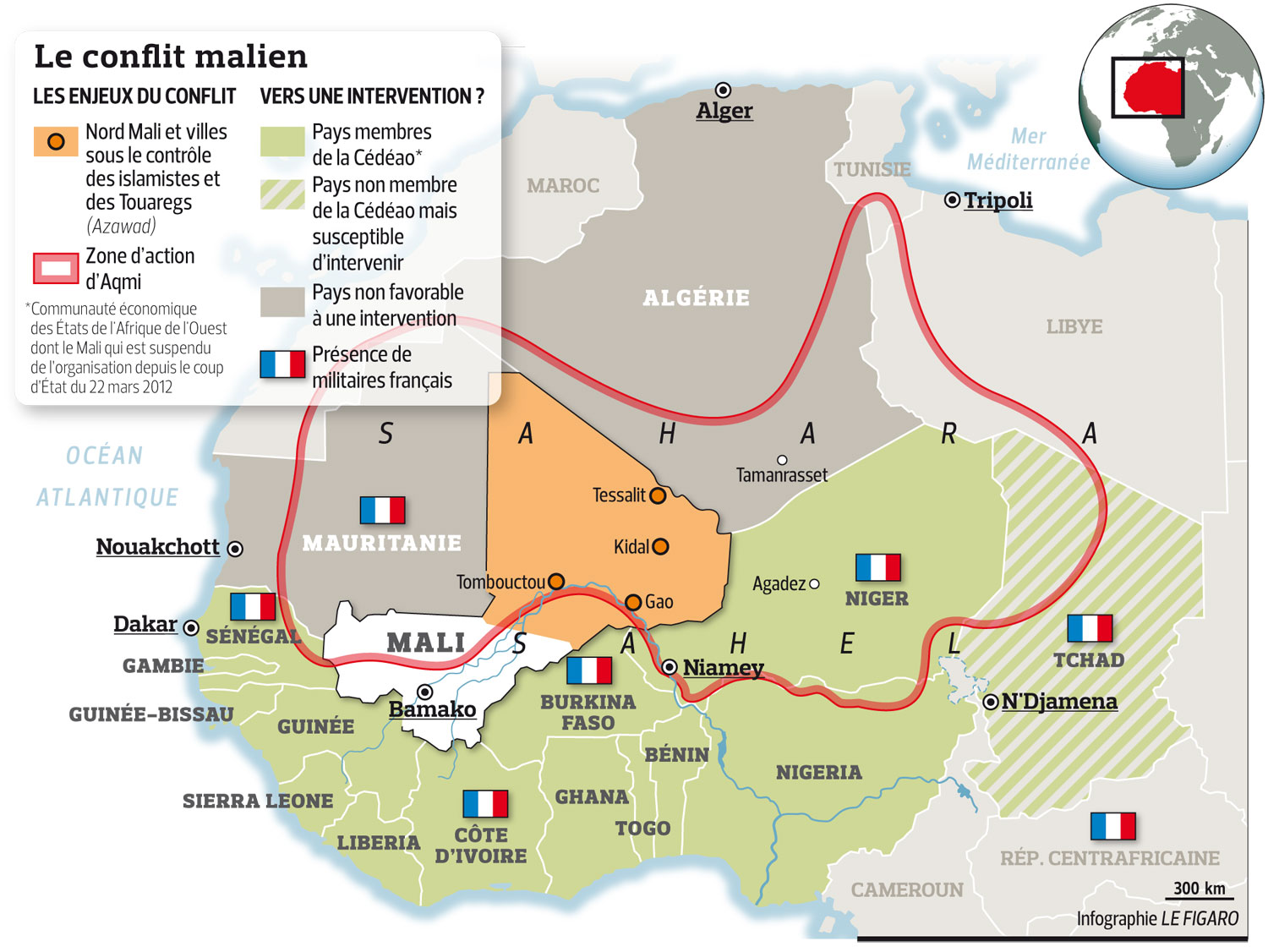
In the case of Libya, more than five years after Gaddafi fall, Libya on brink, just forget about the political landscape and portrait the security implications on the region for a moment; the country has become a magnet for radical militants who receive weapons training in terrorist camps before launching deadly attacks in other countries across the Sahara and Sahel. The terrorist group’s immediate goal is to create a new caliphate in Libya. If no quick solution for Libya is found, terrorism activities will spread in the region and the whole world. The current attack on the Christians of Sinai/Egypt this week is another consequence of the chaos in Libya. During Gaddafi; Libya was a bulwark against the terrorist groups spreading in the Sahara and Sahel strip. The balance of power in the region has been upset creating a dangerous threat that a new terror state will rise in the border lines due to the terrorism expansion on the region.
Many African leaders including Chadian President Idriss Deby have condemned the international community for its interventions in Africa. Deby argues that the crises engulfing the continent come from outside and not within Africa itself. “Gaddafi is dead and has left Libya to armed groups. Africa must now bear the consequences of this chaos,” said Deby in an interview with DW. He said that Europe must take responsibility for the fact that formerly peaceful countries are being terrorized by the Nigerian terrorist group Boko Haram. According to Deby; the arms come from Libya and Boko Haram fighters were also trained there after Gaddafi’s death.
It’s obvious that there is still a huge gap between the international community and these African leaders – as they criticize the international community for its military intervention in Libya in 2011, in which Gaddafi was killed. Deby argued that France played a leading role in the deployment. Today Africa must bear the consequences of the intervention. “But the African continent has never asked to fight against Libya,” Deby stressed.
Perhaps, just like me, you have been wondering why American troops engaged in lengthy conflicts that have not been able to get out of it for more than a decade; such as Afghanistan and Iraq, while French forces were able to finish the operation quickly in Libya and Mali, regardless of the outcome of the military interventions. Thus, there is no reason to believe that the result will probably be different in CAR in the future.
Recently, the French government has establishment a 3,000-strong counterterrorism force across the Sahel region under the name of Barkhane Operation, starting in August 2014, with its headquarter in N’Djamena, Chad, and its forces present in Mali, Burkina Faso, Niger and Mauritania, such step demonstrates the long-term involvement of France in the Sahel region. More than two years later; the Sahel is nothing but a drought-prone region of Africa.
Disastrous Failures
Numerous current studies clearly indicate that outside military interventions tend to lengthen the expected duration of civil wars, making the hostilities more bloodier and longer, and would consequence more serious regional disaster. Hence, if we look back at Somalia, Libya and CAR or even Iraq; foreign military interventions in these countries are nothing but just a disastrous failure.
What are the solutions? I am not an expert on security as I don’t have a wealth of information on security matters. However, much of the empirical literatures suggest that incorporate mediations as the crucial importance to resolving the strategic problems that fragile states and civil war parties face.
As I am digging for solutions; I was not really surprised by Mr. Chuck Hagel, the former US Secretary of Defense, when he claimed in August 2011, by discussing the conflicts in Afghanistan and Iraq: “We’ve got to get out of those wars. Let the people [Afghan and Iraqi people] decide what they want. If they don’t want what we wanted for them, or if they certainly don’t want what we wanted for them as much as we want it, then we can’t control that.” This point might be very interesting for a military strategist to think this way. At first glance, it sounded like hell yeah – this is the only solution for the construction of a viable Malian state and for the ones in CAR and Libya or even in Iraq and Afghanistan. However, here are the real questions: Is it the desire of local populations in Africa to commit genocide? Or to be killed by Bats of darkness– the so called terrorists? No sir. At this moment the answer is absolutely not to let the people decide what they want, but you’ve got to get out of those wars anyways.
Why shouldn’t the international community let the people of conflict-affected areas choose what they want? It is a misconception that education and economic solutions are not immediately critical solution for this dilemma. We all know that most of the people live in conflict-affected areas are poor, not educated, and face the lack of national identity as well as the limited allegiance to a centralize source of power, these are the challenges to success peace, sovereignty and integration. Tribal warfare and religious variable – or the so-called Islamic radicalism is the element of the complexity of conflicts in the contemporary reality of Africa. Therefore, African governments have resorted to the use of security and military solutions to confront and resolve these conflicts, rather than diplomatic techniques and strategic games.
What Solutions?

Credit : Le Figaro
Even though the U.N. Security Council could be the preferred authorizing body for military interventions according to the U.N. Charter; however, the African Union, and sub-regional organizations should be legitimate authorizers in resolving armed conflicts in Africa, because I believe that regional and sub-regional African organizations have the right moral, cultural and political ability to resolve armed conflicts in the continent. Nevertheless, we cannot depend only in Africa, the ideal situation would be for all three levels, the international, regional and sub-regional, to be focused and in agreement on action that had to be taken. – In connection with this; my argument is based on the experiment of the Economic Community of West African States (ECOWAS) tactics in Gambia that served as model, according to ECOWAS Article 58 of its revised treaty relating to regional security which justifies interventions. We have seen an amazing combination of muscle and diplomacy that forced Gambian President Yahya Jammeh to cede power last month to challenger Adama Barrow, who won the nation’s general election. Don’t you think that this is the right calculus that our new generation dreams of?
Various studies have confirmed that diplomacy is conclusive for understanding the duration of civil conflicts or any conflicts. They find that mediation has a spectacular effect on the expected duration of a civil war and that when controlling for diplomatic efforts, economic interventions can also play a crucial role. Therefore, there are important and need to re-examine history in understanding conflicts as well as academic attention is urgently needed instead of military interventions.
I don’t know if our human minds can ever fully understand the deepest levels of calculus of military interventions in Africa. A more complicated SWOT analysis and evaluating interventions outcome is required.
By Idriss Zackaria Idriss

